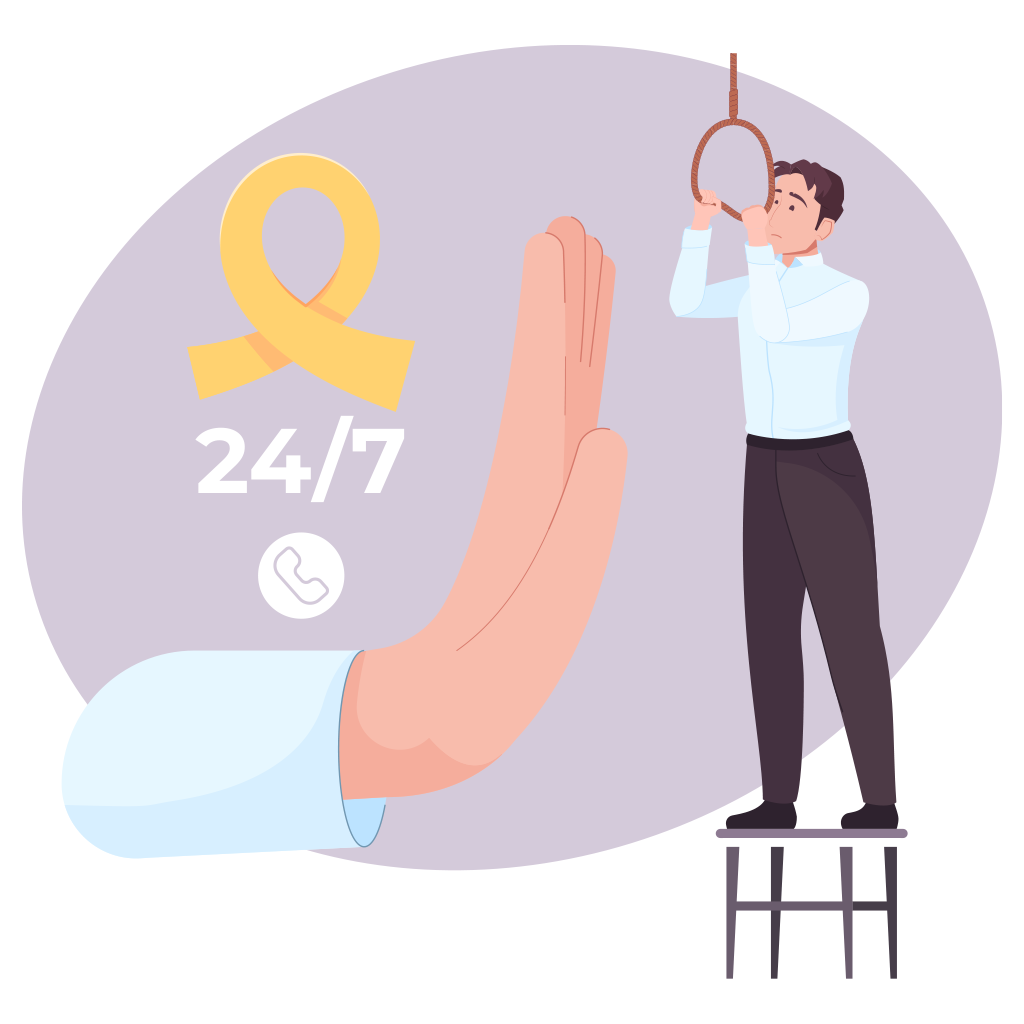Why is it so important to talk about suicide among men?
For too long, suicide has been considered a taboo topic. This is especially true when it comes to discussing suicide among men. However, it’s time that we start talking about this issue. Suicide is now the tenth leading cause of death in the United States, and more than three-quarters of all suicides are committed by men.
We believe that raising awareness is key to prevention. Too often, people don’t even realize that they’re in danger until it’s too late. Unfortunately, mental health is still something of a taboo topic, particularly among men. As a result, many men suffering from depression or other mental health issues don’t seek help because they’re afraid of being seen as weak or crazy.
This needs to change. We need to create a culture where it’s OK for men to talk about their mental health and where seeking help is seen as a strength, not a weakness. With the resources and information below, we hope to help save lives.
Suicide Statistics
- Suicide is the 10th leading cause of death in the US.
- Each year, suicide kills more people than homicide.
- Suicide rates are highest for middle-aged adults (45-54 years old) and for those 85 years or older. However, the most frequent suicide victims are in the age group of 25 to 44 years old.
- Men die by suicide 3.53 times more often than women.
- White males accounted for 7 out of 10 suicides in 2016.
- Suicide rates are higher in rural areas than in urban areas.
- Firearms are the most common method of suicide, accounting for nearly 50% of all suicide deaths.
How to Have the Conversation
Talking about suicide can be difficult, but it’s important to have an open and honest conversation about mental health and suicide prevention. If you’re not sure how to start the conversation, here are a few tips:
1. Choose the right time and place:
Start by choosing a time and place where you’ll be able to have an uninterrupted conversation. It’s also important to make sure that both people are in a good frame of mind before starting the discussion.
2. Be direct:
It can be tempting to beat around the bush, but it’s important to be direct when talking about such a sensitive topic. Remember that this is an important conversation and both parties need to be honest with each other.
3. Listen more than you speak:
It’s easy to get caught up in our own thoughts and experiences, but it’s important to really listen to what the other person is saying. Try to resist the urge to jump in with your own stories or advice, and just focus on listening.
4. Avoid judgment:
It’s important to avoid passing judgment on someone else’s experiences or feelings. This isn’t about you; it’s about them. So try to be understanding and non-judgmental in your approach.
5. Ask questions:
If you’re not sure what someone means or if you want to know more about their experiences, don’t be afraid to ask questions. Just make sure you do so in a respectful way.
6. Show support:
Finally, it’s important to show support for the other person during this conversation. Let them know that you care about them and that you’re there for them no matter what happens.
- Related: Talking To Your Kids About Suicide – 10 Helpful Tips
- Quick Quiz: Suicidal Test
Why men are at a greater risk of death by suicide
Self-treat
Men may be more likely to self-treat symptoms of depression with alcohol and other substances, which can lead to tragic consequences. It’s important for everyone to understand the warning signs of suicide and how they can help someone who might be at risk.
Less likely to seek help for emotional problems
Men are less likely than women to seek professional help for their emotional problems. This can be due to a number of factors, including the stigma around mental health, traditional gender roles, and the fact that men are more likely to bottle up their emotions. This reluctance to seek help can put men at greater risk of suicide.
Shame and stigma surrounding mental health issues
There is a lot of shame and stigma surrounding mental health issues, particularly for men. This can prevent men from seeking help for their mental health problems and make them more likely to self-medicate with alcohol or drugs. It’s important to break down the stigma around mental health so that more men feel comfortable seeking help.
Unemployment
Unemployment can be a major risk factor for suicide among men. They are more likely to work in industries that have been hit hard by the recession, such as manufacturing and construction. This can lead to financial insecurity and job loss, which can contribute to suicide risk.
Relationship problems
Relationship problems are also a major risk factor for suicide among men. They are more likely to experience relationship difficulties, such as divorce or separation. This can lead to feelings of isolation and loneliness, which can make suicide seem like the only way out.
Prevention
If you or someone you know is struggling with mental health, there are a number of things you can do to help.
1. Talk to someone:
If you’re feeling suicidal, it’s important to talk to someone about it. You can call a suicide hotline in your country for confidential support.
2. Seek professional help:
If you’re struggling with mental health issues, seek professional help. This can be in the form of therapy, medication, or both.
3. Reach out to your support network:
Make sure to reach out to your friends and family for support. They can offer a listening ear and a shoulder to cry on.
4. Get involved in suicide prevention:
You can also get involved in suicide prevention by volunteering for a suicide hotline or participating in awareness-raising campaigns.
5. Take care of yourself:
Make sure to take care of yourself both mentally and physically. This means eating a healthy diet, exercising, getting enough sleep, and avoiding drugs and alcohol.
If you or someone you know is struggling with mental health, please reach out for help.
- The suicide hotline in the US is 1-800-273-8255.
- The suicide hotline in the UK is 0800 280 8586.
- The suicide hotline in Australia is 13 11 14.
- The suicide hotline in Canada is 1 800 456 4566
- Suicide and Crisis Lifeline – Hotline 988

The link between masculinity and suicide
There is a strong link between masculinity and suicide among men. This is because our society has a very narrow definition of masculinity, which can be incredibly constricting and lead to feelings of isolation and hopelessness.
The pressure to conform to such a narrow definition of masculinity can be overwhelming, and it’s one of the main reasons why suicide rates are so high among middle-aged men. Our society needs to do a better job of supporting men and helping them to express their feelings in healthy ways.
How our society can do a better job of supporting men
Our society can do a better job of supporting men by being more understanding and accepting of the fact that men have feelings too. We need to provide more outlets for men to express their emotions, such as through therapy or support groups. We also need to challenge the narrow definition of masculinity and help boys and men to understand that it’s okay to be sensitive and to express their emotions.
Conclusion:
If we want to reduce the number of suicides among men, we need to start by having an open and honest conversation about mental health and suicide prevention. We need to create a culture where it’s OK for men to talk about their mental health without stigma or judgment. By following these tips, we can start having those conversations today.
